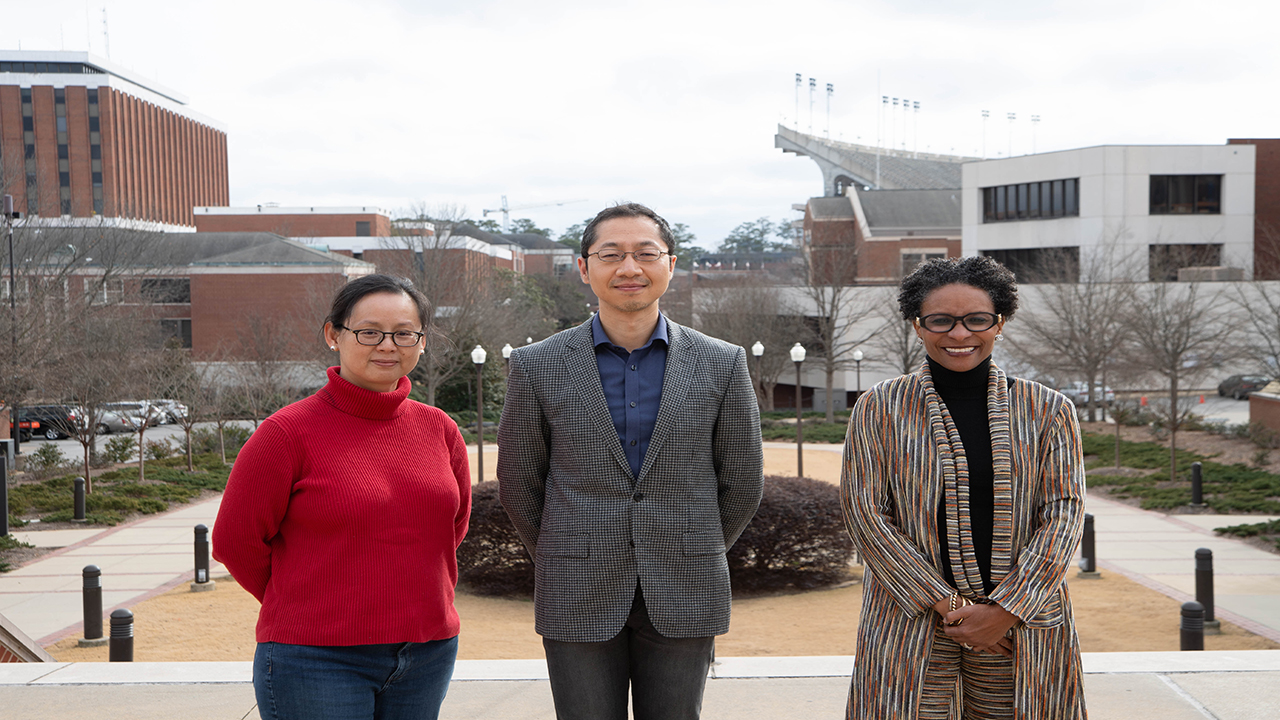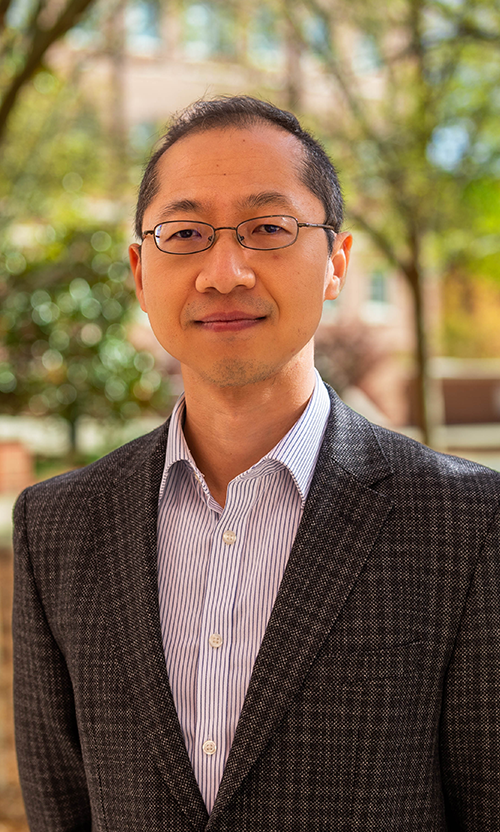Auburn University initiates AI smart manufacturing education program through NSF grant
Published: Feb 20, 2024 11:05 AM
By Carla Nelson
Integrating artificial intelligence (AI) into advanced manufacturing has promising potential to revolutionize productivity and generate new jobs in smart manufacturing. Several Auburn University faculty members have recently been awarded a nearly $200k National Science Foundation (NSF) Rapid Response Research (RAPID) Grant to initiate a career-driven AI educational program for high-school students to prepare them for these opportunities. This project is a collaborative effort between the College of Engineering and the College of Education.
Peter Liu, assistant professor in the Department of Industrial and Systems Engineering; Melody Russell, alumni professor of science education in the Department of Curriculum and Teaching; and Chih-hsuan Wang, professor in the Department of Educational Foundations, Leadership and Technology, have teamed up to develop an innovative AI curriculum for high school students from underserved school districts in the State of Alabama. The curriculum will focus on the integration of artificial intelligence and additive manufacturing content and processes into the science, technology, engineering and mathematics, or STEM, curriculum through a one-week summer camp.
“We can foresee that in the future AI will be a very important tool for the workforce,” Liu said. “We want to teach these students these tools at an early age to solve some of the problems in manufacturing and possibly the future.”
Russell agreed.
“This is so important for workforce development in the state of Alabama and in our region, relative to AI,” she said. “We are excited about this collaboration, which entails the development and implementation of an innovative curriculum for 50 high school students from underserved districts. This project will also provide transformative professional development for high school teachers, which is a key element for broadening participation in STEM.”
Wang added that it’s also important for students to learn to use AI in different ways.
“We want to teach these students that they can incorporate AI in a different way, in a positive way,” she said. “It’s not about just learning it, but knowing how to utilize it to improve our life in the future.”
In addition to the students, 10 high school teachers will be recruited for a three-day intensive professional development institute before the student summer camp. Teachers will facilitate and lead the summer camp activities, engage in the development and implementation of the curriculum, and develop lessons specifically for their own classroom and school.
The team will use the summer camp outreach experience to provide insight on strategies for engaging high school students and teachers in AI and additive manufacturing content in an effort to broaden participation in STEM for students in underserved school districts and interest in careers in AI and smart manufacturing.
“We want to develop a curriculum that these teachers can take back to their school and use to build a sustainable program,” Liu said. “We hope to use this camp as a springboard to gain more funding in the future and expand this program to share with more communities.”
Media Contact: , carla@auburn.edu, 334-844-1404
From left to right: Chih-hsuan Wang, professor in the Department of Educational Foundations, Leadership and Technology; Peter Liu, assistant professor in the Department of Industrial and Systems Engineering; and Melody Russell, alumni professor of science education in the Department of Curriculum and Teaching, have teamed up to develop an innovative AI curriculum for high school students from underserved school districts in the State of Alabama.


